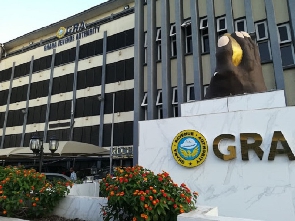 The Ghana Revenue Authority (GRA)
The Ghana Revenue Authority (GRA)
The Ghana Chamber of Bulk Oil Distributors (CBOD) 2019 Ghana Petroleum Industry Report has revealed that the various units of the Ghana Revenue Authority GRA coordinate their activities or share information on a routine basis.
the GRA has integrated the four revenue institutions namely the Customs, Excise and Preventive Service (CEPS), the Internal Revenue Service (IRS), the Value Added Tax Service (VATS), and the Revenue Agencies Governing Board (RAGB).
The 2019 Ghana Petroleum Industry Report explained that the main reason for amalgamating the various revenue collection agencies into GRA was to make for better coordination and greater efficiency in domestic revenue mobilisation.
“It does not, however, appear that the various units of the GRA coordinate their activities or share information on a routine basis,” it said.
The report further stated that for instance, the Petroleum Desk has always conducted separate field audits from the Transfer Pricing (TP) Unit and the Customs Division does not also routinely share information with the Transfer Pricing Unit and the Petroleum Desk.
“In the particular case of the Transfer Pricing Unit, it adopts a post-facto investigation/audit rather than real-time transaction monitoring to flag and detect potential cases of Transfer Pricing manipulation.
“This, perhaps, explains why the Unit was completely oblivious of the Ghana Gas-Sinopec deal and the incidence of Transfer Pricing that arose through project procurements.
“The Petroleum Unit of GRA has, however, indicated that a decision has been reached with the TP Unit to include staff of the TP Unit on the Petroleum Unit’s field visits, and to better coordinate their activities.”